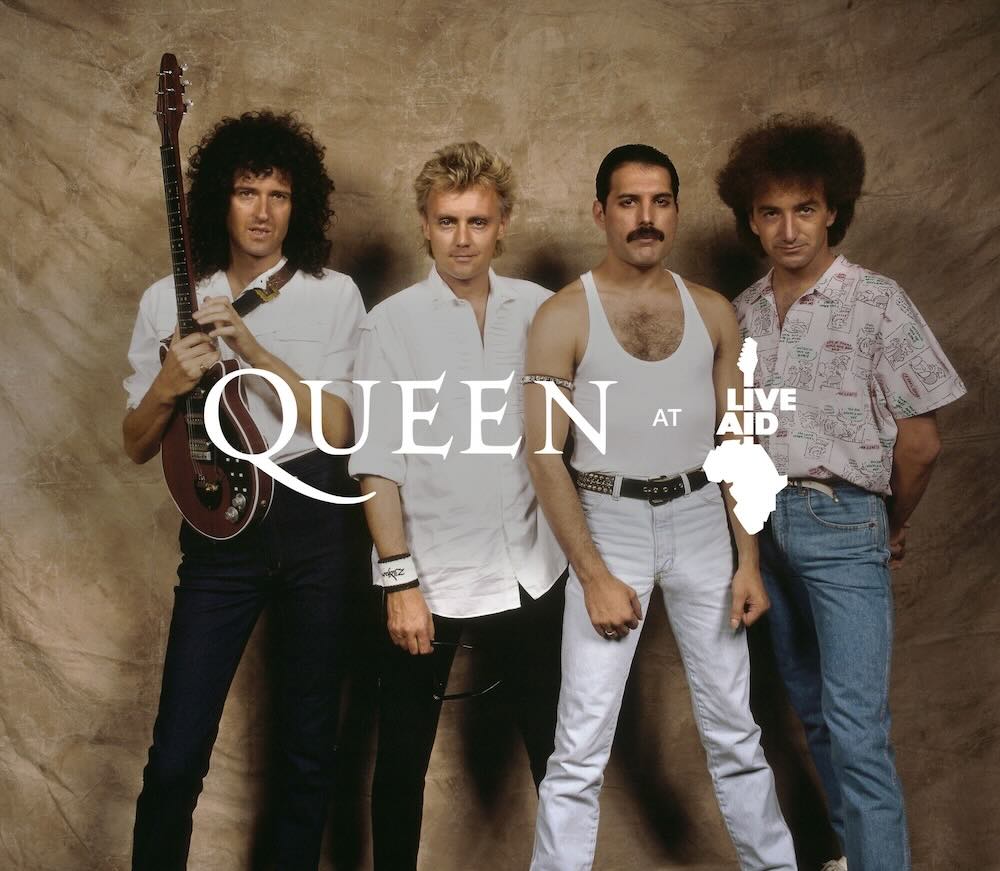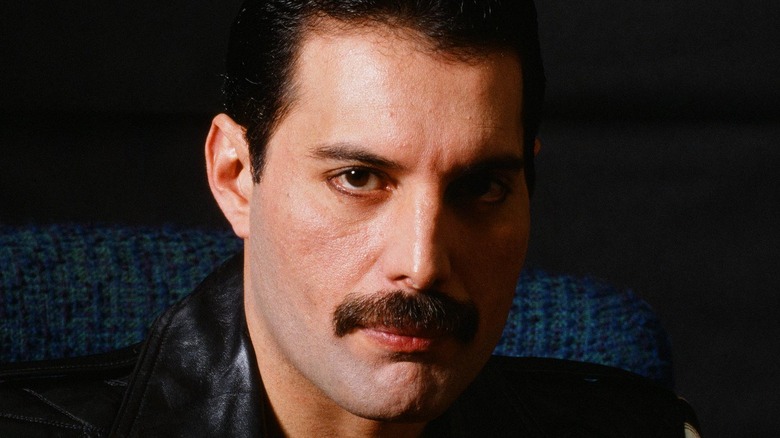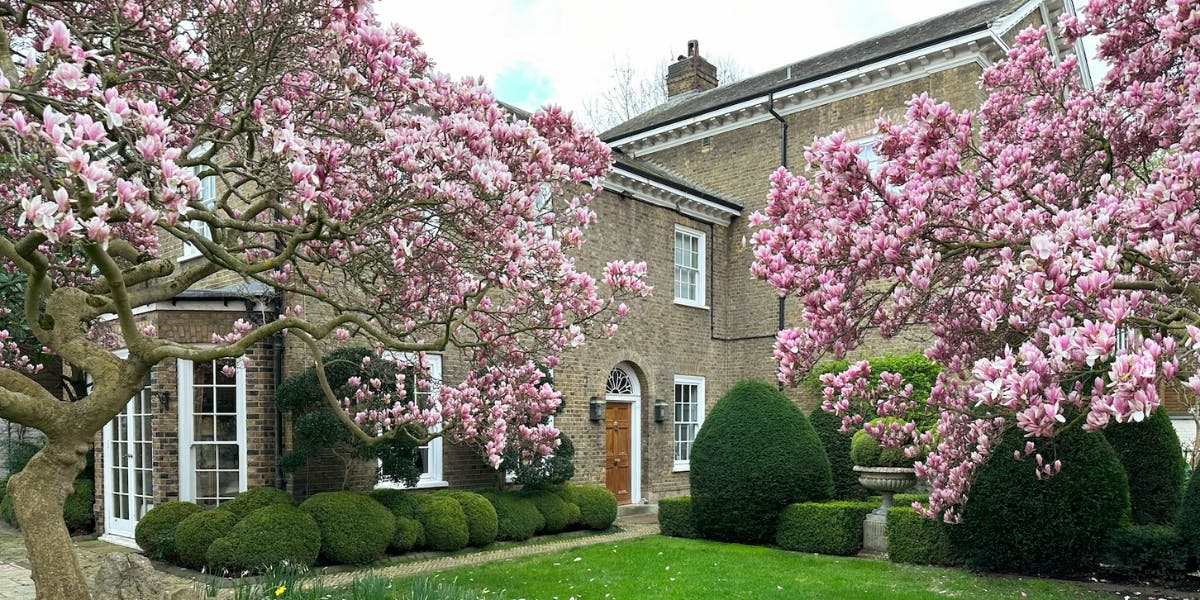Freddie Mercury Net Worth 2025: The Secret Daughter and Estate Legacy Revealed.
“What will I be doing in twenty years' time? I'll be dead, darling! Are you crazy?”
—Freddie Mercury
Few performers embodied both extravagance and vulnerability like Freddie Mercury. As Queen’s magnetic frontman, he captivated audiences with a voice that defied limits and a stage presence that redefined rock music. Yet behind the theatrics, Mercury was a shrewd creator—quietly building a fortune that would secure his legacy long after the final encore.
When Mercury passed away in 1991, aged just 45, his personal wealth was estimated at around $50 million—a combination of property, royalties, and personal assets meticulously organized in his will. Since then, his estate has only grown, powered by Queen’s enduring popularity and a resurgence of interest following the release of the biopic Bohemian Rhapsody.
In this article, we look beyond the legend to explore how Freddie Mercury amassed his wealth, where it went after his death, and how his financial legacy continues to evolve in today’s music industry.
From $50 Million to $100 Million: The Unfolding Narrative of Freddie's Posthumous Wealth
At the time of his passing in 1991, at just 45 years old, the King of Rock left behind a substantial fortune, then estimated at around $50 million. Freddie owned real estate worth the inflation-adjusted equivalent of $40 million and had $13 million worth of other liquid assets according to Celebrity Net Worth.
This was a considerable sum for any artist of his era, reflecting his colossal success with Queen and his burgeoning solo career. Yet, decades later, his legacy has only amplified.
As we stand in mid-2025, Freddie Mercury's estate is now valued at a staggering over $100 million.

Freddie Mercury commands the stage with unmatched energy and showmanship during one of Queen's legendary live performances.
This isn't merely a testament to the timeless appeal of his music; it's a living, breathing financial empire that continues to expand through shrewd management of his rights, massive streaming figures, and a constant resurgence of public interest, particularly ignited by events like the Bohemian Rhapsody biopic and the recent, headline-making discoveries about his private life.
In the sections that follow, we will journey through Freddie's extraordinary career to understand precisely how he made his millions.
More importantly, we'll delve into the intricate details of what happened to his vast fortune upon his death, unraveling who controls his immense wealth today, and who he ultimately entrusted his legacy to.
And, for the first time, we will explore the astonishing revelation of his secret daughter, a story that adds an entirely new, deeply personal layer to the legend of Freddie Mercury.
Freddie Mercury Net Worth: How Freddie Built His Enduring Empire
Freddie Mercury’s monumental wealth was forged directly from his unparalleled talent and relentless creative output as Queen's frontman and a principal songwriter. His income during his lifetime primarily stemmed from lucrative record deals, global tours, and the astute management of his intellectual property rights.
Recording Contracts and Artist Royalties:
Beginning in 1970, Queen secured pivotal recording contracts with EMI Records (UK) and Elektra Records (US).
Early agreements—such as the reported £200,000 buy-out from Trident Studios—offered relatively low royalty rates, often in the single-digit percentages. However, Queen’s explosive global success, selling hundreds of millions of records, gave them leverage to renegotiate for significantly higher royalties.
By the late 1970s and 1980s, they were earning 15–20% of the wholesale price, a standard for major artists. With millions of albums and singles sold, these higher royalty rates produced substantial, recurring income for Freddie.

Queen prepares for their legendary Live Aid set in 1985—an electrifying performance that would go down as one of the greatest in rock history.
Intellectual Property (IP) Rights and Publishing Royalties
As the sole or co-writer of iconic hits like “Bohemian Rhapsody,” “We Are the Champions,” and “Don’t Stop Me Now,” Freddie held valuable IP rights. These rights earned publishing royalties whenever his songs were publicly performed—on radio, television, or in live cover performances—or reproduced in any format.
For context, U.S. mechanical royalty rates rose from 2 cents per copy in 1977 to 5.7 cents by 1990 according to the Royalty Exchange. Given Queen’s widespread airplay and cultural presence, these royalties generated millions in annual income during their peak.
Importantly, before 1989—when Queen began equally crediting all band members for The Miracle and Innuendo—Freddie retained full publishing rights to his individually penned songs.
Global Tours and Live Performance Earnings
Queen was a dominant touring force, consistently selling out arenas and stadiums around the world. These live shows were key revenue drivers, not only through ticket sales but also from merchandise and licensing.
One standout example is the 1986 Magic Tour, which attracted over a million fans across Europe.
Ticket prices for major shows in the 1980s typically ranged from £5–15 (approximately $8–$25 USD). These high-grossing tours were a major component of Freddie’s performance income, significantly boosting his net worth during his career’s most active years.
The Enduring Legacy: What Happened to Freddie's Fortune After His Death
Freddie Mercury’s passing in November 1991, with his fortune estimated around $50 million, didn't mark an end, but a transformation of his empire. His will, a deeply personal final act, meticulously provided for those closest to him while ensuring his artistic legacy thrived, continuing to generate immense wealth.
His lifelong friend and former fiancée, Mary Austin, became his primary heir. She inherited his beloved Garden Lodge mansion in Kensington, London, valued at approximately £500,000 in 1980, along with about $13 million in cash and cherished personal possessions. This was Freddie's profound act of trust.
His parents and sister, Kashmira Cooke, each received 25% of his future royalties. Poignantly, upon his parents' passing, their shares reverted to Mary Austin, increasing her total ongoing royalty share to 75% of Freddie's portion of the band's earnings. Other personal bequests went to his loyal staff, including £500,000 each for his assistant Peter Freestone and chef Joe Fanelli, and £100,000 for his driver Terry Giddings, alongside provisions for his partner Jim Hutton.
The dramatic surge from an estimated $50 million at his death to over $100 million by mid-2025 is a testament to both his music’s timelessness and the astute estate management, largely facilitated through Queen Productions Ltd., the company responsible for managing Queen's collective income and intellectual property.
This entity continues to report significant earnings, with its most recent publicly available filings showing a turnover of £40.89 million (approximately $51.9 million USD) and a profit for the financial year 2022. This continuous flow of revenue, managed by Queen’s long-time manager Jim Beach, ensures Freddie's legacy remains a vibrant financial force as detailed in Companies House financial records.

Bohemian Rhapsody celebrates the legendary rise of Freddie Mercury and Queen—because the only thing more extraordinary than the music was his story.
Key drivers of this growth include:
- Ongoing Royalties: His share of Queen's music continues to generate substantial income from global sales and, critically, massive streaming figures.
- Strategic Licensing: Freddie’s image and Queen’s music are carefully licensed for films, TV, and advertising, ensuring continuous revenue.
- Bohemian Rhapsody Biopic (2018): This film, grossing over $910 million globally (sources: The Numbers, Wikipedia), revitalized Queen's popularity, leading to a massive surge in back catalog sales and streaming, significantly enriching the estate.
- Sotheby's Auction (2023): This unprecedented sale of his personal belongings exceeded £40 million (over $50 million) according to Artnet News, and Sotheby's. Iconic items like his Yamaha piano fetched £1.7 million ($2.2 million). This demonstrated the immense value of his tangible legacy.
Freddie’s foresight and Mary Austin’s stewardship ensured his financial legacy continues to echo his powerful influence.
A Hidden Chapter Unveiled: The Revelation of a Secret Daughter
For decades, Freddie Mercury’s private world seemed relatively understood. Yet, a stunning revelation, confirmed by the forthcoming September 2025 biography Love, Freddie: Freddie Mercury's Secret Life and Love by Lesley-Ann Jones, unveils a profound, hidden chapter: the existence of his secret daughter as reported by The Evening Standard.

Freddie Mercury in a rare introspective moment—behind the showman’s flair was a deeply private artist grappling with fame, love, and legacy.
This deeply personal detail was reportedly known only to his closest inner circle, including his parents, sister, bandmates, and Mary Austin - the woman a closeted Freddie Mercury fell in love with as reported in The New York Post. The woman, identified simply as "B" to protect her privacy, is now 48, working as a medical professional in Europe. She claims to have been conceived in 1976 during an affair between Mercury and the wife of a close friend.
As extensively detailed by The Independent in their May 2025 reports on the upcoming book, "B" asserts she maintained a close, loving relationship with Freddie "from the moment I was born" until his passing in 1991.
Crucially, before his death, Freddie allegedly entrusted her with 17 volumes of his private, handwritten journals, spanning from 1976 to July 1991. These journals, kept secret for decades, form the core evidence presented in Jones's meticulously researched biography.
Biographer Lesley-Ann Jones, a veteran music journalist, publicly addressed initial skepticism, stating in interviews reported by publications including The Mirror that she is "absolutely sure she is not a fantasist," noting "B" has never sought fame or financial gain through public means.
"B" herself, in a letter included in the book, explained her decision to come forward after "more than three decades of lies, speculation and distortion," stating it was "time to let Freddie speak" through his writings.
Importantly, while "B" was not provided for directly in Freddie's official will, reports indicate she was made "extremely wealthy" through a separate, private legal arrangement involving both Freddie and her stepfather.
This highlights Freddie's quiet, deeply personal financial commitment beyond his public estate.
The Art of Living: How Freddie Mercury Spent His Fortune
Freddie Mercury's vast fortune wasn't just accumulated; it was lived.
He famously declared, "I want to lead the Victorian life, surrounded by exquisite clutter," and his spending reflected this grand vision.
His most significant expenditure was Garden Lodge, his beloved Kensington mansion, bought for £500,000 cash in 1980 as reported by Sotheby's This became his personal sanctuary, meticulously transformed into an opulent, yet private, haven with bespoke renovations.

Garden Lodge, Freddie Mercury’s former Kensington residence, remains a quiet monument to the Queen frontman's extravagant life and private legacy—still lovingly preserved behind its iconic green walls.
Freddie was a passionate, discerning collector. The 2023 Sotheby's auction, which liquidated much of his estate, revealed the breadth of his passions, with sales exceeding £40 million. His collections included:
- Fine Art & Antiques: Works by artists like Picasso and Dalí, alongside exquisite Art Nouveau pieces from Tiffany and Lalique.
- Japanese Art: A deep fascination developed after his 1975 visit, leading to a significant collection of woodblock prints (like Utagawa Hiroshige's works, with one fetching £292,100), kimonos, and ceramics. Sotheby's even dedicated a specific auction day, "In Love with Japan," to this passion.
- Unique Furnishings: His home featured bespoke decor, including a D-shaped bar that sold for £120,650 detailed on Sotheby's
Beyond tangible assets, Freddie's money funded a lifestyle of lavish hospitality. Though he never drove, he maintained chauffeur-driven luxury cars like a 1974 Rolls-Royce Silver Shadow, acquired by his company, Goose Productions, in 1979 and included in the Sotheby's auction.
He was renowned for his legendary, extravagant parties. Even his beloved cats were indulged; a silver cat model from his collection fetched £21,590 at auction according to Doerr Dallas Valuations, highlighting his deep affection. Freddie's spending was an extension of his flamboyant stage persona into his private life, a deliberate curation of beauty and extraordinary experiences.
The Genesis of a Legend: Freddie Mercury's Life and Career
Born Farrokh Bulsara on September 5, 1946, in Stone Town, Zanzibar, Freddie Mercury's life was a testament to extraordinary transformation.
His Parsi parents sent him to St. Peter's boarding school in Panchgani, India, at age eight, where his remarkable musical talents first bloomed with piano lessons. It was there his classmates began calling him "Freddie." In 1964, his family relocated to Feltham, England, a pivotal move that would set the stage for his destiny.
After earning a degree in graphic art and design from Ealing Technical College, Freddie immersed himself in London's music scene. In 1970, he joined guitarist Brian May and drummer Roger Taylor from the band Smile, soon suggesting a new name: Queen.
With bassist John Deacon's arrival in 1971, the classic lineup was complete. Freddie wasn't merely the vocalist; he was a visionary, famously designing the band's iconic crest and infusing their sound with operatic flair according to uDiscoverMusic
Queen's unique blend of rock, opera, and pop swiftly redefined music. While their debut album Queen (1973) introduced them, it was 1975's A Night at the Opera, featuring the epic, multi-faceted "Bohemian Rhapsody," that propelled them to global superstardom.

Queen’s 1975 masterpiece A Night at the Opera—a genre-defying album that introduced the world to “Bohemian Rhapsody” and cemented the band’s place in rock history.
Freddie penned many of Queen's greatest anthems, including "Somebody to Love" and "We Are the Champions," showcasing his remarkable four-octave vocal range and flamboyant stage persona.
His showmanship reached its zenith on July 13, 1985, during Queen's electrifying performance at Live Aid. Commanding Wembley Stadium with unparalleled charisma, it remains widely hailed as one of the greatest live acts in rock history, a moment that cemented his legendary status according to CNN
Beyond Queen, Freddie explored diverse creative avenues, releasing the solo album Mr. Bad Guy (1985) and fulfilling a long-held dream by collaborating with Spanish operatic soprano Montserrat Caballé on the acclaimed Barcelona album (1988). Freddie Mercury's life was a testament to his boundless artistry, transforming him from Farrokh Bulsara into an immortal icon.
The Show Must Go On: Freddie Mercury's Enduring Legacy
"I won't be a rock star. I will be a legend," Freddie Mercury declared, and his words proved prophetic. More than three decades after his death, his influence has only intensified, cementing his place as a musical titan whose spirit resonates globally.
His meticulously managed musical estate thrives, generating continuous financial returns from over 300 million records sold and billions of streams. The 2025 Polar Music Prize awarded to Queen further underscores their ongoing critical acclaim.
The colossal success of the Bohemian Rhapsody biopic (grossing over $910 million worldwide) and the £40 million+ (over $50 million) from the 2023 Sotheby's auction (source: Artnet News, Sotheby's) not only enriched his estate but reignited global fascination.
Beyond wealth, Freddie's legacy is defined by his profound human impact. His courageous public announcement of his HIV status according to Smithsonian became a global catalyst for AIDS awareness.
The Mercury Phoenix Trust, founded in his memory, has since raised over £18 million (more than $22 million) to fight the disease. Freddie Mercury's legacy is a vibrant tapestry of unparalleled artistry, personal generosity, and a courage that ensures: "The Show Must Go On."
An Enduring Influence
Freddie Mercury remains a defining figure in music history. From Zanzibar to Wembley Stadium, his influence spans continents and generations. His legacy thrives not only through Queen’s discography but also through modern cultural touchpoints: film, fashion, streaming, and stage.
With his estate still earning millions annually, Freddie’s impact isn’t just artistic—it’s financial, emotional, and eternal. Freddie Mercury’s music and life continue to inspire new generations, proving that true artistry transcends time.
LATEST: Freddie Mercury's Fortune: Who Inherited His Billions, The Secret Daughter & His Ever-Growing Legacy
Freddie Mercury Frequently Asked Questions:
What is the cause of death of Freddie Mercury?
Freddie Mercury died on November 24, 1991, from bronchial pneumonia resulting from AIDS. He had been diagnosed with HIV in the late 1980s but kept his condition private until just 24 hours before his death, when he issued a public statement confirming he had AIDS.
Did Queen go to Freddie Mercury's funeral?
Yes, the surviving members of Queen — Brian May, Roger Taylor, and John Deacon — attended Freddie Mercury’s private funeral. The ceremony was a Zoroastrian service, reflecting Mercury’s upbringing, and was attended by close friends and family, including his longtime confidante Mary Austin.
How much did Mary Austin get when Freddie Mercury died?
Freddie Mercury left half of his estimated £9 million estate (around $15 million at the time) to Mary Austin, including his lavish London mansion, Garden Lodge. She also later received the remaining 50% of his share of Queen’s future earnings after his parents’ passing. In total, her inheritance has grown to be worth tens of millions over the years.
Who was Freddie Mercury seeing when he died?
At the time of his death, Freddie Mercury was in a committed relationship with Jim Hutton, an Irish hairdresser who had been his partner for the last six years of his life. Hutton cared for Mercury in his final months and was with him when he died.
✨ Other Net Worth's You May Like:
Elvis Presley Net Worth 2025: The King's Billion-Dollar Ghost & a Love Revealed!
How Michael Jackson's Estate Went From Debt to $2 Billion by 2025
John Lennon Net Worth 2025: The ONE Investment That Skyrocketed His Fortune!
Disclaimer: How We Estimate Net Worth
Our net worth figures are estimates based on publicly available information, including real estate records, reported earnings, public filings, industry data, and expert analysis. Because private financial details are rarely disclosed, these numbers reflect approximations rather than precise amounts. We regularly update our estimates to incorporate new information and ensure ongoing accuracy.














